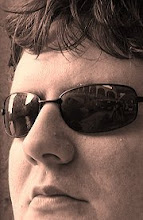In these two months (August 24 - October 20) I've discovered the following about grad school and life in general:
- I love teaching. A lot. I look forward to classroom time when I'm on the other side of the desk much more than to anything else. My kids are intelligent and engaged, within the limits of their generation, of course (nonexistent general culture due to abysmal secondary schooling, irritatingly short attention span, some holier-than-thou attitude, etc). Despite the anti-intellectual world they live in, they seem to take entry-level philosophy decently seriously, and that pleases me. I'd like to believe it's because I'm just that good, but I know better. I'm sure it's because they genuinely like to think, as every healthy kid does, and it pains me that they have been (and will be) pressured not to from almost every side. But that's a lamentation for another time.
- I don't like my own research so much anymore. It may be for a variety of reasons. (1) I don't have much time for it, what with TAing and the inordinate amounts of assigned class reading, often in the order of 150+ pages a week. (2) My two research seminars, if engaging, aren't totally up my alley. "Religion in the Public Sphere" has has very high highs when secularism and establishment are discussed and very low lows when... well, anywhen else, even if I just love Simon May's South African accent. "On Darwin's Origin" is schizo: the large lectures are excruciatingly boring forays in the history of biology, which good ol' Dr. Zemke drilled into my brain four years ago, so... catching some zzzs. But the Friday graduate discussion sections are enthralling thanks to Dick Burian, who surely has to be the most knowledgeable living biped (look up R.M. Burian). So even though this stuff is awesome and is helping me a lot in building a solid background, I'd still like to focus my work elsewhere. See below.
- There's no such thing as "meanwhile." I'm supposed to carry out my own research at the same time as I take seminars, both for submitting it to conferences and journals and prospectively toward my thesis. But in practice, this is nearly impossible. This term I'm writing 3 term papers around 20 pages each (one on Lakatosian falsification in evolution, one on whether a secular state is implicitly a nonreligious establishment, and one gods only know what about)... and in the midst of that, plus teaching, I'm supposed to research epistemic circularity, which is what really turns me on? It's just not happening, at least not right now. They tell me that this is to be expected, though, and that to some extent it gets better. One hopes.
- I feel, to some degree, unfulfilled. This might really be mostly because I can't work on what I want, even though one seminar this coming Spring might give me the chance to. But maybe it's simpler than that, a normal and predictable side effect of having to get used to new living patterns. And who knows if this isn't a co-cause or an effect of my messed-up emotional life right now (see below). Once again, it might be too early. Probably, like many others, I've romanced grad school as a purely-intellectual liberation from the daily-grind uselessness of college... but of course the key word there is "romanced." Duh, Claudio.
- Never have a crush when you can't afford it. It's bad, bad, bad. But then again, what's new there. FML, and for once I mean it.
- VT's philosophy department is a rocking place to study. As per the Leiter report (www.philosophicalgourmet.com), we are among the top five programs in the U.S. offering terminal MA degrees in philosophy. I have no terms of comparison, but it feels that the reputation is well-earned, and I'm not talking about the big names we have here or attract each time we host a conference, though that counts too. My #1 reason is the superb quality of the faculty. I am holding a wary, but pleasant, double-mindedness in my relationships with them. On the one hand, I'm awestruck by the impressive amount of knowledge. Some are authorities in their fields; others are somewhat known and very serious scholars. Not one isn't a very respectable expert in something or other (which, given the positions they hold, is no less than I should expect). On the other hand, they feel less like oracles and more like peers. It helps that in our department faculty and grad students are on a first-name basis by default, but it goes deeper than mere lack of formality. Those with whom I've taken the time to converse have taken the time to talk TO me rather than AT me, and point me in useful directions for my research and my studies in general. Perhaps this department, at this time, is striking a desirable balance between quality of research and quality of teaching, which might reflect the equally good balance of very seasoned and very young professors--roughly, experience and enthusiasm.
That's it. No, I'm sure there's more... but that's it for now. Each of the points made above needs elaboration, but that'll have to be some other time. Bed beckons. Ah, yes, THAT is an important point...
- If you don't get all the sleep that you need, you're DEAD!





